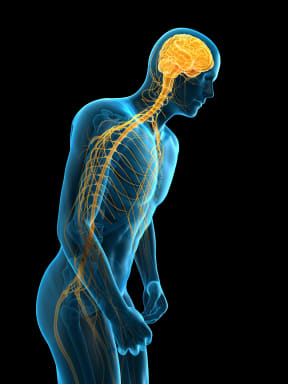Further evidence Parkinson's disease may be triggered in the intestine raises hopes for earlier diagnosis and scientists in South Africa discover the disease trajectory of tuberculosis.

Parkinson's disease can invade from the intestines. Photo: SEBASTIAN KAULITZKI / SCIENCE PHOT / SKX / Science Photo Library
An estimated 10 million people worldwide are affected by Parkinson's disease.
The discovery of a possible pathway for the disease into the brain via the gut raises the prospect of earlier diagnostic tests.
Dr Smith says that the idea that Parkinson's could originate in the gut was first suggested in mouse studies conducted by a team at Caltech led by Sarkis Mazmanian last year.
They found that it was only mice whose intestines were colonised with bacteria, and 'germ-free' animals who went on to develop the neuro-degenerative disease.
But until now the route between the gut and the brain and nervous system has remained unclear. Now Duke University researcher Rodger Liddle and his team, in a paper in the Journal of Clinical Investigation Insight, studied the colonies of cells and bacteria living in the gut.
They found a communication system revolving around enteroendocrine cells (or EECs) connecting to nerves in the gut wall. In certain circumstances, these EECs express a protein called alpha-synuclein that is known to accumulate in nerve cells damaged by Parkinson's disease.
The researchers think that the characteristics of some microbiomes could be causing the alpha-synuclein to accumulate in nerve cells and travel via the nervous system to the brain.
"The team don't think that it's a coincidence that patients with Parkinson's Disease frequently also develop bowel problems such as constipation, sometimes years before they show any neurological signs of the disease... it may even be possible to diagnose Parkinson's in future using a bowel biopsy," Dr Smith said.
And in other research news, tuberculosis kills at least 2 million people every year, and an estimated one-third of the world's population carry the disease.
Now scientists in South Africa have shown how TB overwhelms our immune system to become an active disease.

